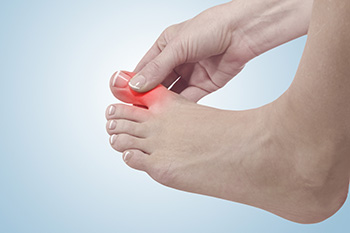(517) 487-5171
Fax (517) 908-0172
Complications of Gout
Tuesday, 26 December 2023 00:00
Gout, a form of inflammatory arthritis, can lead to several complications if not properly managed. Chronic gout can cause persistent pain and swelling in the joints, significantly affecting mobility and quality of life. Over time, the buildup of uric acid crystals in the joints can lead to tophi, which are lumpy deposits that can be felt under the skin. These tophi can become inflamed or infected, causing further discomfort and complications. Repeated gout attacks can also lead to joint damage and deformity, particularly in the big toe, feet, ankles, and knees. This damage can be debilitating, leading to reduced joint function and chronic pain. Moreover, gout is often associated with other serious health conditions, including kidney stones as a result of excess uric acid. It can also increase the risk of cardiovascular diseases and chronic kidney disease. These complications underscore the importance of making an appointment with a podiatrist. If you have developed gout, it is strongly suggested that you are under the care of this type of doctor who can offer you relief and preventive options.
Gout is a painful condition that can be treated. If you are seeking treatment, contact Dr. Gary Cesar from Michigan Foot and Ankle Center. Our doctor will treat your foot and ankle needs.
What Is Gout?
Gout is a form of arthritis that is characterized by sudden, severe attacks of pain, redness, and tenderness in the joints. The condition usually affects the joint at the base of the big toe. A gout attack can occur at any random time, such as the middle of the night while you are asleep.
Symptoms
- Intense Joint Pain - Usually around the large joint of your big toe, and it most severe within the first four to twelve hours
- Lingering Discomfort - Joint discomfort may last from a few days to a few weeks
- Inflammation and Redness -Affected joints may become swollen, tender, warm and red
- Limited Range of Motion - May experience a decrease in joint mobility
Risk Factors
- Genetics - If family members have gout, you’re more likely to have it
- Medications - Diuretic medications can raise uric acid levels
- Gender/Age - Gout is more common in men until the age of 60. It is believed that estrogen protects women until that point
- Diet - Eating red meat and shellfish increases your risk
- Alcohol - Having more than two alcoholic drinks per day increases your risk
- Obesity - Obese people are at a higher risk for gout
Prior to visiting your podiatrist to receive treatment for gout, there are a few things you should do beforehand. If you have gout you should write down your symptoms--including when they started and how often you experience them, important medical information you may have, and any questions you may have. Writing down these three things will help your podiatrist in assessing your specific situation so that he or she may provide the best route of treatment for you.
If you have any questions, please feel free to contact our offices located in Lansing and Mt. Pleasant, MI . We offer the newest diagnostic and treatment technologies for all your foot care needs.








